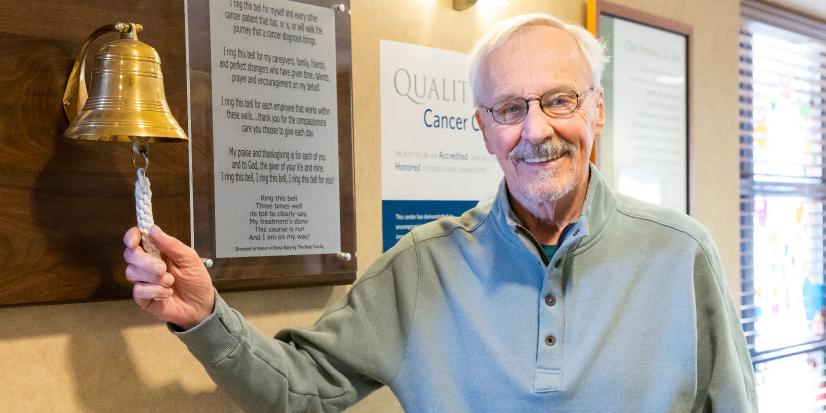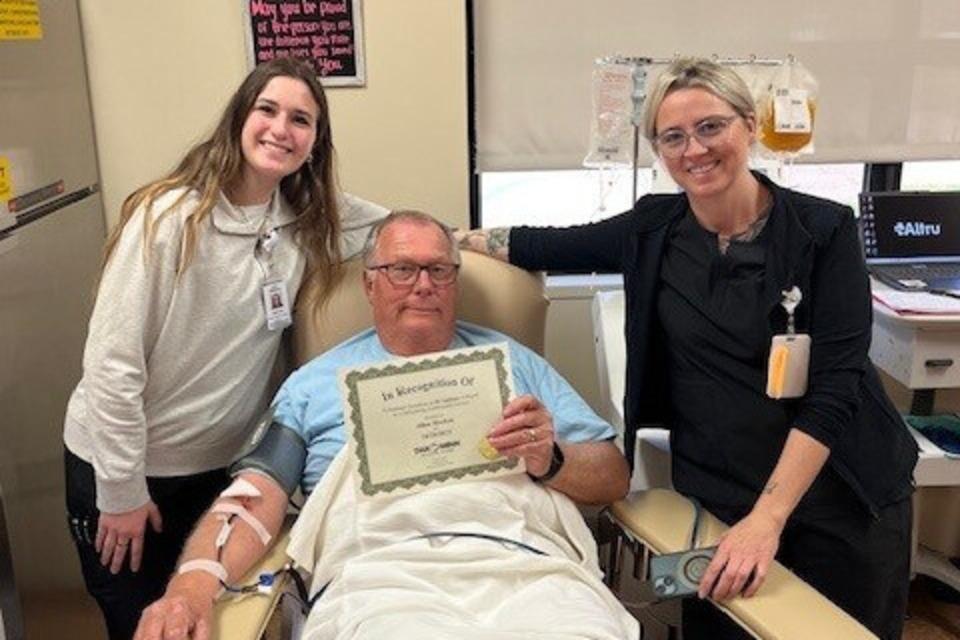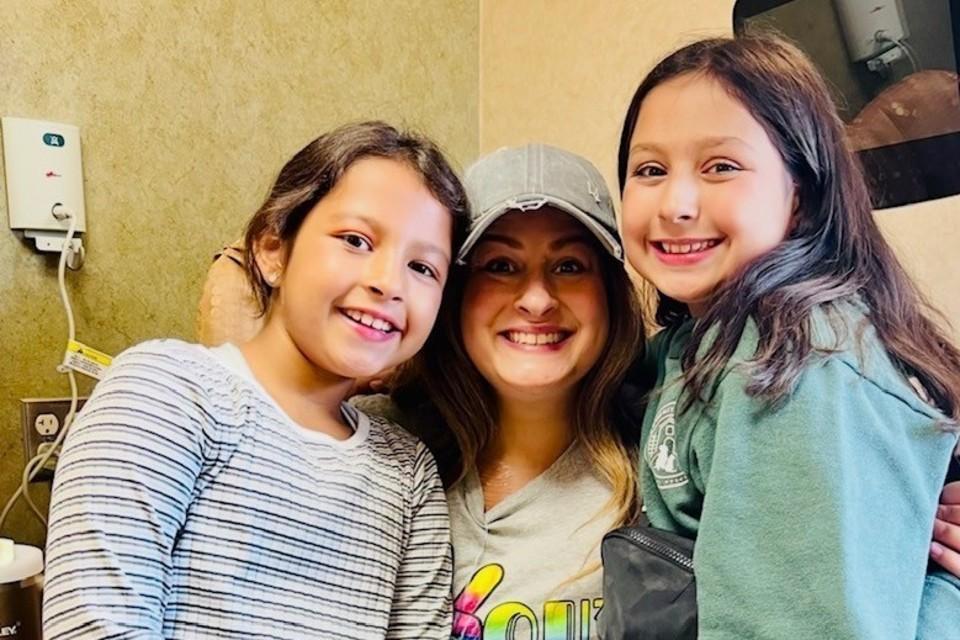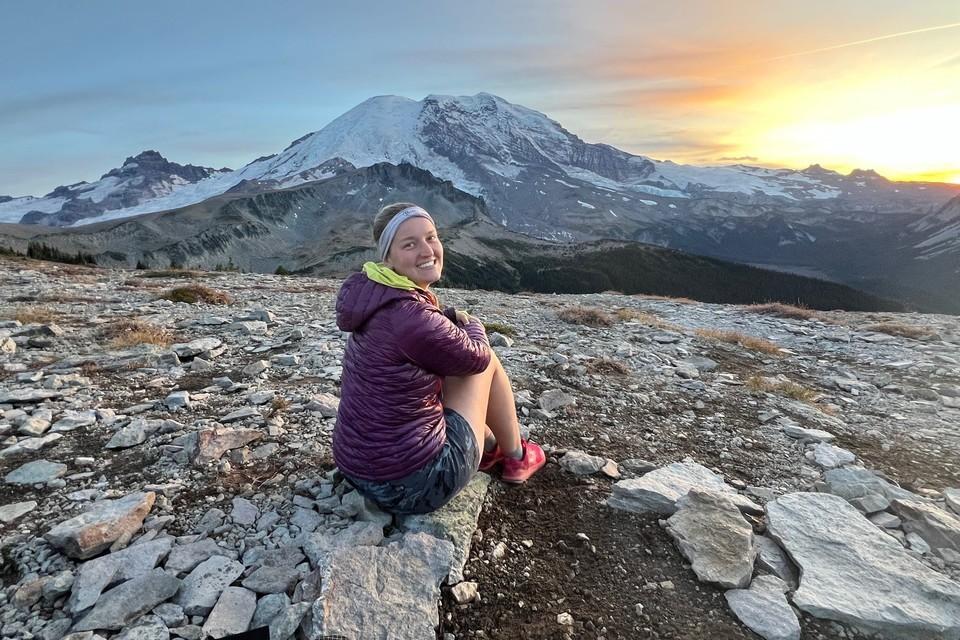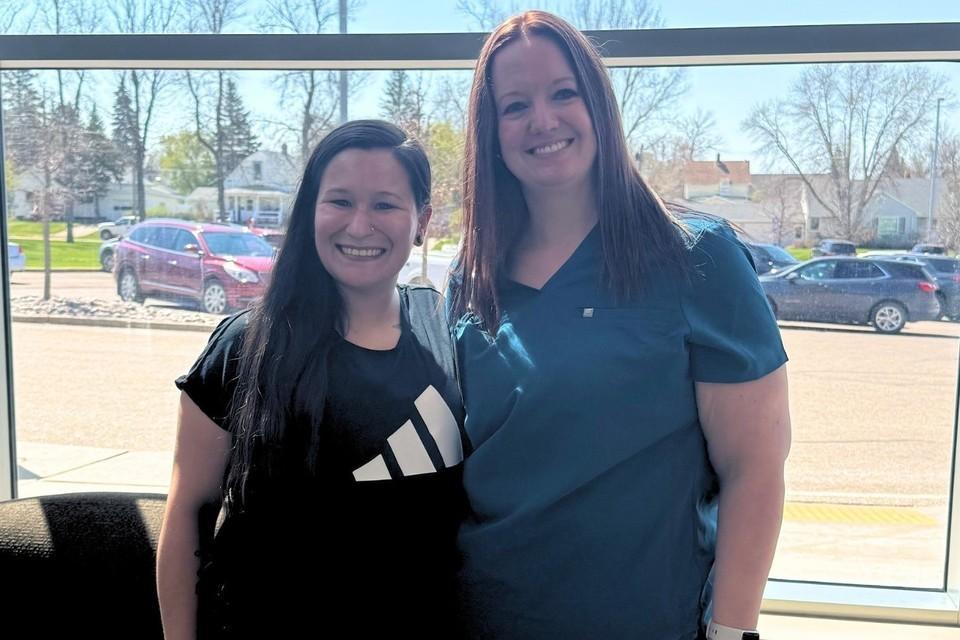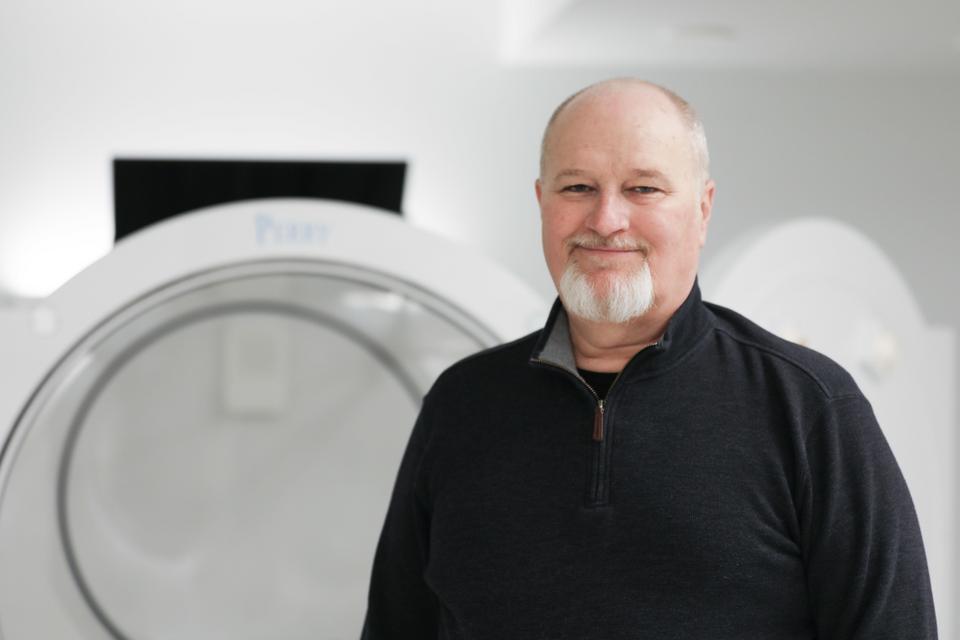At 72 years old, Jerry Rolland had always considered himself a healthy person. So, when he noticed blood in his stool in early 2021, he tried not to think about it.
“It was easier to brush it off and hope it would go away,” Jerry says. “But when the problem persisted, I finally made an appointment for a colonoscopy.”
Jerry found that undergoing the procedure that he had put off for so long was relatively easy but learning the results would be a different story.
“The diagnosis was cancer, and it was gut-wrenching. What is it that makes us think we’re invincible?” he questions in hindsight. “I was grateful that my wife, Merrie, was there, assuring me we would get through this together.”
The Start of a Long Road
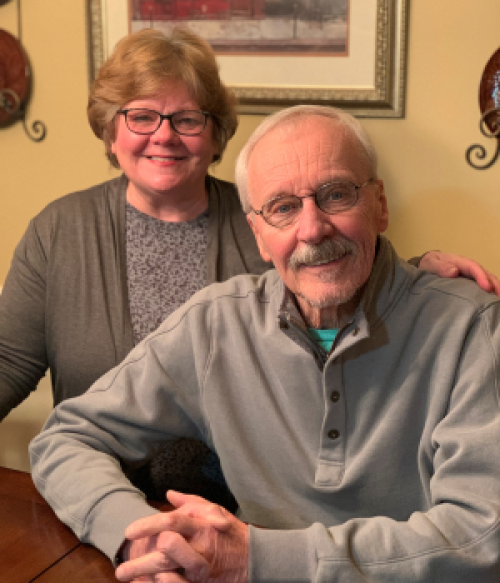
After receiving the diagnosis, Jerry and Merrie, along with their daughter, Kelly, and son, Jason, began to prepare themselves for the journey ahead. “I was filled with fear, but I also wanted to do whatever I could to help arm my dad for what was to come,” Kelly remembers. “Jason and I started researching, and we became hopeful. If it was stage 1 or 2 colon cancer, survival rates were high.” But after additional scans, the family’s hopes were dashed. The diagnosis was devastating: stage 4 colon, rectal and liver cancer. “It was hard to wrap my mind around it,” Jerry says. “The prognosis was not good, but I appreciated the empathy and compassion shown to me by the physicians at Altru. I also felt fortunate to have my family with me, reassuring me that we would give this our best shot.”
Soon they were meeting with their oncologist, Daniel Walsh, MD, who determined a treatment plan and consulted with specialists at Mayo Clinic. While Jerry was initially unsure if he wanted to undergo chemotherapy, as he knew the side effects could be difficult, he understood it was his best chance to beat the cancer.
“Dealing with cancer can be one of the loneliest feelings in the world, but we quickly learned that we were far from alone,” Jerry says. “We discovered an entire team at Altru Cancer Center pulling for us, and I am grateful for every one of them. They are simply amazing.”
Staying Strong
On the day after Easter, Jerry’s chemo treatments began. He would have a total of 12 cycles, three days every other week, each consisting of three to four hours of IV infusions at the Cancer Center, followed by 48 hours with a portable, wearable chemo pump. While chemotherapy and its side effects are unique for every patient, Jerry’s consisted of three different drugs with numerous side effects. They included extreme fatigue, appetite and weight loss (35 pounds plus another 10 pounds after surgery), mouth sores, hair loss, hearing loss, and chemo fog, or a decrease in mental sharpness as a result of the chemo drugs. He also experienced neuropathy in both his hands and feet.
“The neuropathy caused several problems, including balance issues, difficulty with fine motor skills such as buttoning a shirt, tying my shoes, picking up small items or turning pages of a book—frustrating for an avid reader like me,” Jerry says. “But it was a small price to pay for the privilege of being here.”
For most patients who undergo chemotherapy, neuropathy is temporary. Jerry, however, was told to expect that some of his could turn out to be permanent, given the time it has persisted. For Jerry, the neuropathy includes a sensation of pins and needles and ice-cold hands almost constantly.
Answered Prayers

As chemo neared its end, scans were showing positive results with tumors on the liver barely visible. It was the news they had been praying for. Jerry was referred to colorectal and liver surgeons at Mayo Clinic. “Once again I was astounded by the degree of compassionate care I received, with an entire team of experts collaborating on my behalf,” Jerry says. “It all felt like a miracle.” After two more rounds of chemo back home, Jerry and his family returned to Mayo Clinic in September for a liver ablation and colorectal surgery, followed by an ileostomy—a rerouting of the small intestine to an opening in the abdomen used to expel waste while the colon heals. Jerry would receive the best possible results.
Just a few days after surgery, Mayo Clinic colorectal surgeon Kevin Behm, MD, and oncologist Zhaohui Jin, MD, delivered the news: They could detect no remaining signs of cancer.
“I recall the doctors telling us that they rarely see such a complete response to treatment in patients with his diagnosis and stage of cancer,” Kelly says. “It was a miracle.”
Prayers had been answered, indeed. There were a few more bumps along the road. A post-surgery checkup in October revealed and treated a blood clot on Jerry’s lung. That was followed by the final four sessions of cleanup chemo (adjuvant treatment) to lessen the chance of the cancer returning.
On Nov. 24, the day before Thanksgiving, Jerry got his pump unhooked for the last time. With his family there to celebrate, he finally got to ring the bell signifying completion of his chemotherapy.
“It was music to my ears,” Jerry says. “And I had so much to be thankful for.”
Looking Ahead
In January, Jerry returned to Mayo Clinic to have his ileostomy reversed. He shared how thankful he is for another successful surgery, even though his recovery has been difficult and continues to have its ups and downs.
He now has checkups every three months, circulating tumor DNA tests monthly for two years and is scheduled for a colonoscopy and CT scan in April. And while he still has lingering effects from the chemo, some of which may be permanent, Jerry is filled with gratitude and hope for others on a similar journey.
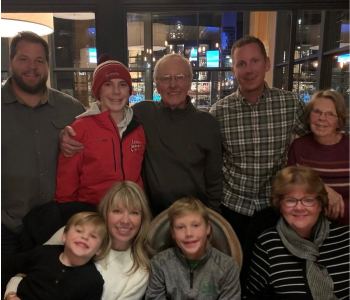
Both Jerry and Merrie expressed how grateful they are to everyone who has been a part of their journey—especially Kelly and Jason, with whom it often seemed they had reversed roles. “We could not have gotten through this without them,” Jerry says. “I know I’m here today through the grace of God, the power of prayer and the wonderful medical teams at Altru and Mayo Clinic. Nowhere in the world could I have received any better care.”
When Should You Get a Colonoscopy?
The American Cancer Society recommends that people with average risk for colorectal cancer begin screenings at age 45, either with a colonoscopy every 10 years or another screening method. Talk to your doctor about which option is right for you. If you are at higher risk for colorectal cancer due to family history or other factors, you might need to start screening earlier.
It’s also important to be aware of the signs of colorectal cancer. If you experience symptoms such as a lasting change in bowel habits, blood in your stool or abdominal pain, talk to your doctor right away.
Patients with an average risk of colorectal cancer should begin screenings at age 45. To schedule a screening colonoscopy, call 701.780.6533 or use MyChart.


